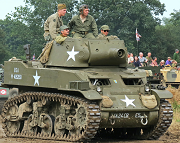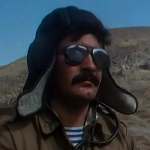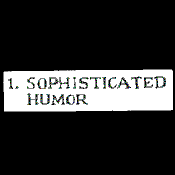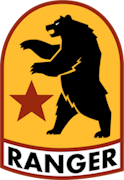|
Bear in mind that a hell of a lot of Polish political prisoners ended up in the death camps as well. The Nazis considered Poland to be 'future colony land' and anyone who might potentially resist that was tagged for extermination. The occupation of Poland was only somewhat better than the occupation of the USSR.
|
|
|
|

|
| # ? Jun 10, 2024 15:40 |
|
Mycroft Holmes posted:Ok, so this might be a bit of a controversial question, but what was the extent of Polish cooperation in the Holocaust? Most other countries had at least some of their population that were complicit in helping the Germans carry out the Holocaust, but Poland has built up this huge reputation as resisting it. Is this true? Out of curiosity where did you hear this and was it from a Pole? Cos it's a new one on me. The usual example is Denmark afaik. Meanwhile immediately prewar Poland as a state was antisemitic as gently caress. Eg https://en.m.wikipedia.org/wiki/Ghetto_benches check out this poo poo feedmegin fucked around with this message at 21:30 on Jun 19, 2017 |
|
|
Mycroft Holmes posted:Ok, so this might be a bit of a controversial question, but what was the extent of Polish cooperation in the Holocaust? Most other countries had at least some of their population that were complicit in helping the Germans carry out the Holocaust, but Poland has built up this huge reputation as resisting it. Is this true? My perception is the reverse, both from German Jews I know and film in general depicting Poles as very anti-semitic even when they're resistance fighters. I see the stereotype as the reverse. My recollection is Poland was not one of the more collaborative occupied countries in this regard, however, but by no means the best case either.
|
|
|
|
|
Poland had a lot more Jews than most other countries, so there was a lot going on and it's tough to generalize. There was awful poo poo like Jedwabne but also hundreds of thousands of Poles risking their lives to shelter Jews. I'd guess the Soviet framework of lumping everyone into"victims of fascism" did a number on how postwar Poland remembered the holocaust but I'll leave that to the people here who know what they're talking about.
|
|
|
|
Yeah, Poles were really, really complicit in the Holocaust. THey had some awful poo poo done to them, of course, but when it came to getting rid of the Jews they were pretty on board. Yes, some resistance members helped them get away, but then you've got ugly poo poo like ex-resistance members complicit in the post-war crackdown on the Jews. Oh, yeah, that's another thing. A bunch of Jews returning to their homes after the war faced pogroms, sometimes murder, and a general hostility on the part of their ex-neighbors. Turns out a lot of people got a lot of property when the Jews were evicted and most of them didn't want to give it back. Look up the Kielce Pogrom, it's probably the best researched of these. Total numbers of deaths is kind of low-ish in comparison to other things. The numbers are really (REALLY) contested, but a rough ballpark is probably in the area of 800-1200 by 1947. That said, it's important to remember that these are Polish Jews who survived the Holocaust and tried to go back home, so there weren't going to be a huge number to begin with. The fact that we're talking about deaths in the high hundreds, low thousands is an indication that it wasn't exactly a rare occurrence. As to why Poland refuses to acknowledge it, there are a few basic reasons: 1) the post war power struggle between the Polish Communist Party and the Government In Exile. Every communist country you care to name laid all the death of WW2 at the feat of the Germans and described dead resistance fighters, murdered Jews, and liquidated political opponents as "victims of fascism." This went a long, long way to making people shrug off any sense of responsibility for what happened. Obviously the new Polish Communist state has nothing to say or be sorry about with regard to all those dead Jews, as that was the Germans, and any Poles who were involved must have been of the degenerate western leaning kind and we sorted them out after the war. 2) After the war there was a LOT of political capital in being a victim of Nazi aggression. Across Europe a whole lot of foreign policy was anchored on that in the 50s-70s and a whole lot of politicians based their careers on having resisted the Nazis in one way or another. Muddying things up by noting how the victims were also perpetrators wasn't exactly encouraged. 3) This also comes into the various national myths of the war. Everyone involved - from Britain to France to Poland to the US - had to construct a national memory of the war that made them the good guys. For most countries WW2 became the defining experience that shaped their national identity well into the 21st century. In the case of Poland you celebrate the brave men who died resisting the initial invasion, the brave men and women who fought in the underground, the brave men who fought from exile with foreign forces, etc. Naval gazing about how you helped the Germans murder a huge chunk of your people doesn't fit well with that. DOUBLY so for how they were treated after the war - that's still a really fraught topic in Poland.
|
|
|
|
Ithle01 posted:If I had to take a guess, all of them. Americans talking about how awful the Vietnam war are certainly correct because it was a terrible experience, but try checking things out from the other side. Are there any good sources for the other side of vietnam, or even any fiction (readily accessible for my english-speaking rear end) about it? The vietnamese feel like one of the big faceless enemies of history for all that pop culture seems to humanise them.
|
|
|
|
Cyrano4747 posted:Obviously the new Polish Communist state has nothing to say or be sorry about with regard to all those dead Jews, as that was the Germans, and any Poles who were involved must have been of the degenerate western leaning kind and we sorted them out after the war. Has anyone got any insight as to why the modern Turkish state has chosen for eighty years to actively deny the Armenian genocide and defend the old regime's actions, rather than taking a similar line and going "aha, but you see, such horrors were perpetrated by the last gasps of the old rotten Ottoman Empire which we have now cast away, and is therefore nothing at all to do with us?"
|
|
|
|
Trin Tragula posted:Has anyone got any insight as to why the modern Turkish state has chosen for eighty years to actively deny the Armenian genocide and defend the old regime's actions, rather than taking a similar line and going "aha, but you see, such horrors were perpetrated by the last gasps of the old rotten Ottoman Empire which we have now cast away, and is therefore nothing at all to do with us?" Because the actions were primarily undertaken as part of the founding of the modern Turkish state, not the last gasps of the Ottoman empire. It would be like trying to say the actions of Aaron Burr were the last gasps of British tyranny in the American Colonies rather than one rear end in a top hat patriot.
|
|
|
|
spectralent posted:Are there any good sources for the other side of vietnam, or even any fiction (readily accessible for my english-speaking rear end) about it? The vietnamese feel like one of the big faceless enemies of history for all that pop culture seems to humanise them. I'm not really a good source for this because any recommendations I make are based off my ability to gauge credibility based on Amazon reviews, in other words I'm in the same place as you are, but if I had to go with one I'd say Mourning Headband for Hue. If you want something about the experience in the North I don't really have any insight. I've tried looking, but most of what I've found is heavily biased because the government isn't thrilled about opening up their archives or relaxing censorship on the subject. The only things I've read are basically propaganda pieces, although the persecution by Ngo Dinh Diem is probably accurate. [Hanoi's War is from the perspective of the politics going on in the North itself, but it's very dry and is mostly about negotiations and statecraft. The one good thing about it is that it points out the political divides in the North that hindered them during the war. Most counter-factuals people discuss about Vietnam concern what the USA could have done better, so it's refreshing to see someone point out the bad decisions the other side is making. I completely agree with you about your sentiment on the Vietnam conflict as presented by popular culture because whenever you hear American criticism it's talking our incompetence, political divisions, bad decision, or the futility of fighting 'that pointless war'. In other words almost every one ignores the agency of the Vietnamese people (in the Vietnam war, what the gently caress seriously it's right there in the name) and I don't think they saw it as a pointless war.
|
|
|
Ithle01 posted:I don't think they saw it as a pointless war. When people decry the US fighting a pointless war, they generally mean that the US should have just let the country unify under Ho Chi Minh after he kicked out the French, meaning that the country would have had to deal with a colonial revolution and a brief power struggle instead of a colonial war followed by a decade+ proxy war. Considering that the US not fighting the "pointless war" would have resulted in massive chunks of their country not being smashed to hell and a great many of their people not being killed, all to decide which of two rather unpleasant people was in charge, "pointless" would probably sum up the Vietnamese viewpoint.
|
|
|
|
|
bewbies posted:So I'm writing an essay on public criticism (or really lack thereof) of the US military and while sifting through news articles looking for quotes, I opened this page and started reading it without looking very closely at the header. After struggling through the first paragraph and literally saying out loud "what the gently caress is this?" I looked at the date. Haha, holy poo poo. I decided to translate this into goo A new york times author who should have been canned posted:A great deal of the public criticism, of what is sometimes sneeringly called "Washington strategy," and which has lately been reopened with fresh energy on the occasion of the publication of the report of the General-in-Chief, appears to receive a false direction from mistaken notions as to the true functions of the central military authorities. These tunctions are necessarily of a general order, comprehending the plan of the war as a whole, the indication of the grand military objectives and lines of operation, and such a distribution and marshaling of the forces as will best tend to gain the aim proposed. The practical conduct of campaigns and battles is, as a matter of equal necessity, left with the General in the field. We may say -- using the terms in a sense which, though not strictly accurate, is sufficiently so for an enlarged conveyance of our meaning -- that to the central military authorities belong strategical, and to commanders in the field tactical combinations. A lot of public criticism of (the?) "Washington strategy", recently renewed after the General-in-Chief's report, seems based on a misunderstanding of the functions of the highest echelons of the military. High level generals deal primarily with war on the strategic scale, such as military objectives and c3i/logistics ("lines of operation"). Field-level tactical actions are left to generals on the field. Bohr model: central authorities handle strategery while field officers handle tactics. also, an editor should have been fired for allowing this to be posted:If this distribution of the military duties and responsibilities be in accordance with sound reason, the folly and injustice of placing the blame of every disaster exclusively on the shoulders of the Washington authorities must be apparent. Neither, on the other hand, do we think they should be credited with the full measure of individual successes. The blame in the one case, and the praise in the other, belong, above all to the individual commander who directed the successful or unsuccessful operations. If that tactical/strategic divide makes sense to you, then it's fuckin' stupid to blame the Heptagon (and gently caress anyone who wants to take two whole corners off, that poo poo's never gonna fly) for the failures of field commanders. By the same token, you can't really give the supreme commanders full credit for field successes. Responsibility goes to the field commander, ya dingus. Scratch that, a writer that should have been shot posted:Gen. BURNSIDE is responsible for Fredericksburgh; Gen. HOOKER for Chancellorsville; to Gen. GRANT is due the credit for the campaign against Vicksburgh; to Gen. ROSECRANS belongs the credit of the strategy that regained Tennessee at a stroke and planted the Union army in Chattanooga; and if the disastrous field of Chickamauga lies in the line of that triumphal march to Chattanooga, we are bound to give him the due for that alse.  Gen'rals roster Gen'rals roster  BURNSIDE: Fredericksburg HOOKER: Chancellorsville GRANT (PBUH): Vicksburg RSECRANS: Tennessee/Chattanooga/Chickamauga OK, can't do it anymore, all those damned clauses ugh.
|
|
|
|
WW2 Data Finishing up the German 105mm projectiles, we come across more Hollow Charge rounds. Today's update also has several munitions for Skoda guns, an incendiary projectile, and a round with a disintegrating band. What's so special about a disintegrating band? Check it out at the blog!
|
|
|
|
Cyrano4747 posted:edit: as someone who did an entire dissertation on educational reform I can not emphasize enough just how inextricably linked nationalistic projects and public schools are. It is literally the government gathering all children together and teaching them the things that they think will make them good citizens. "You are American/German/French/whatever and have a duty to your nation" is right up there with literacy and numeracy in poo poo that they need to get across before middle school Don't want to derail the thread or anything but was this dissertation ever published or is it available anywhere Cyrano? Interested in this topic and since you and a lot of other posters in this thread are very well-written and informative it would be great to hear what you had to say here.
|
|
|
|
Nebakenezzer posted:Today at the library I scored a interesting discard: Guadalcanal by Richard B. Frank. Please tell me if it is awful, but it has an endorsement from Tom Clancy on the back cover, so I assume it is cool. It's very good.
|
|
|
|
Gnoman posted:When people decry the US fighting a pointless war, they generally mean that the US should have just let the country unify under Ho Chi Minh after he kicked out the French, meaning that the country would have had to deal with a colonial revolution and a brief power struggle instead of a colonial war followed by a decade+ proxy war. There are a lot of Vietnamese people living in the South that didn't want to see the country unified under the Northern regime for a variety of reasons. However, in light of how things turned out, many of them might have taken the lesser of two evils, but that's getting into counter-factual territory. From the view of hindsight it's easy to say that things turned out as bad as they did.
|
|
|
|
CatsPajamas posted:Don't want to derail the thread or anything but was this dissertation ever published or is it available anywhere Cyrano? Interested in this topic and since you and a lot of other posters in this thread are very well-written and informative it would be great to hear what you had to say here. I'm sure Cyrano wants to self-doxx as a moderator of a forum full of assholes, yes.
|
|
|
|
Azran posted:Out of curiosity, how much do we know about warfare in Oceania pre-European contact? Are there any books you guys could point me towards? I am intrigued since most wargames I know tend to skip over the region (I was surprised when Fields of Glory added a Maori/Hawaiian army list), and Wikipedia doesn't have much. Oceania is a big place, so it's going to be rather different wherever specifically you look. This is especially true if you use Oceania in the broadest sense including New Guinea and Australia. In order to find details you'll either have to turn to anthropological work or accounts by the first European visitors and extrapolate from there. For a quick snapshot of Hawaiian warfare you could read account's from Captain Cook's first visit to the islands. You could probably find a surprising amount just by searching an island name on google books and reading the free portions of some cultural survey. In my opinion the coolest/silliest looking Polynesian warriors were found on Kiribati  Those are pufferfish helmets on their heads, the swords are sharks-tooth, and the armor is coconut husk. I was recently flipping through a publicly available book on Taiwan which had some details you might find interesting. I'm not sure I'd call Taiwan Oceania but its aboriginal inhabitants are (distantly) related to those of the eastern Pacific, and it starts to at least give a sense of what intergroup violence looks like at the village scale. "How Taiwan Became Chinese: Chapter 1 On the Eve of Colonizations posted:Intervillage warfare and diplomacy appear to have been conducted within a sort of common geopolitical culture. Wars were conducted in various ways. Most appear to have been raids and ambushes, which Candidius describes vividly for the Siraya: quote:Such constant warfare was, it seems, tempered by diplomatic conventions. It appears to have been customary sometimes to warn an enemy officially before attacking him. Candidius writes, "When war is undertaken against a village, they first officially end the peace and warn each other."34 More general were conventions for paying tribute and restitution, pigs and spears being the usual currency. In 1626, for example, the villages of Mattau and Baccluan agreed to give twenty pigs to the village of Sinkan as restitution for an earlier attack.35 Similarly, in 1635, Mattau paid a restitution to Sinkan of nine pigs and eight of Mattau's "largest spears."36 Another convention was the sending of weapons to those with whom one desired peace or those whom one wanted as allies against a common enemy. In late 1635 and early 1636, for example, the Dutch East India Company received a spate of peace offerings, many of them accompanied by the sending of weapons. Mattau itself sent a spear and an ax to the company to signify that it was prepared to open peace negotiations. The mountain village of Taraquang sent two arrows to ask the Dutch "to grant them peace and security."37 The village of Tevorang sent a spear, "thereby implying that they were well inclined to join their arms to ours, and that our friendship was all they desired."38 If offering weapons signified a willingness for peace, the ultimate sign of subjection was a gift of trees planted in one's native soil, which the Dutch demanded as a formal sign that the village in question offered its sovereignty to the United Provinces of the Netherlands.39  Although this painting dates from a century after the Dutch period, it illustrates an important aspect of traditional Formosan Austronesian society: the prevalence of intervillage warfare. In the forefround is a fortified aboriginal village whose entrance is guarded by three warriors. Behind the village stand four more warriors, who point at a group of aborigines from a different village, peering back over a hill. The inscription notes that aboriginal villages located near "raw aborigines" (生番, unpacified aborigines) make stockades out of wood and bamboo, and every day aboriginal warriors (番丁) are sent out, "each carrying spears and bows, to watch for the arrival of raw aborigines." Image is from the Fan she cai feng tu (番社采風圖 Genre Paintings of Taiwan Aborigines), used by permission of the Academia Sinica Institute of History and Phililogy.
|
|
|
|
Ithle01 posted:There are a lot of Vietnamese people living in the South that didn't want to see the country unified under the Northern regime for a variety of reasons. However, in light of how things turned out, many of them might have taken the lesser of two evils, but that's getting into counter-factual territory. From the view of hindsight it's easy to say that things turned out as bad as they did. If you go to any area in the United States with a medium - large Vietnamese population, they fly the flag of the Southern Republic as their national symbol. The Red Star flag is very taboo among the expat community. There are many culture and language differences between Southern Vietnamese and the North. If you talk to anyone who had family that fought for or supported the south, you quickly realize that the war was very much a civil war. It's just from the American viewpoint we see it as "Americans vs Vietnamese" instead of "Americans and Southern Viets vs the North and their Chinese/ Soviet benefactors".
|
|
|
|
spectralent posted:Are there any good sources for the other side of vietnam, or even any fiction (readily accessible for my english-speaking rear end) about it? The vietnamese feel like one of the big faceless enemies of history for all that pop culture seems to humanise them. Truong Nhu Tang's A Vietcong Memoir is an absolutely fascinating look at the highest levels of the Viet Cong movement. Truong was a wealthy southern kid who fell in with the Viet Cong because Diem's government was so hopeless corrupt, and rose to become Minister of Justice after the war. He was held prisoner by South Vietnam, was traded out and lived covertly in Cambodia with COSVN, and after the war became disillusioned with the Communist government and had himself smuggled out. Dang Thuy Tram's Last Night I Dreamed of Peace is the diary of a Viet Cong nurse who was killed in action, and her effects taken by the Americans. It's apparently very popular in Vietnam. Dang is a fascinating, hopeless romantic. As Solaris mentioned, the Vietnamese diaspora is very much it's own thing, with a complex and fraught relationship with the mother country and the United States. Viet Thanh Nguyen's The Sympathizer won the Pulitzer Prize for fiction and a bunch of other awards, and is an amazing look at divided loyalties and identities. And finally, since we're shitposting on these forums, this Cracked article on 8 Things Vietnam War Movies Leave Out (By an Enemy Soldier) is surprisingly good, if you can get over the house style.
|
|
|
|
spectralent posted:Are there any good sources for the other side of vietnam, or even any fiction (readily accessible for my english-speaking rear end) about it? The vietnamese feel like one of the big faceless enemies of history for all that pop culture seems to humanise them. I've recommended Vietnam: The definitive oral history before. It has a extremely diverse set of interviews, of which maybe 1/4 are vietnamese points of view from either side. They are short snapshots rather than full depictions though. Azran posted:Out of curiosity, how much do we know about warfare in Oceania pre-European contact? Are there any books you guys could point me towards? I am intrigued since most wargames I know tend to skip over the region (I was surprised when Fields of Glory added a Maori/Hawaiian army list), and Wikipedia doesn't have much. Māori warfare mostly comes from oral history and archaeological artifacts. For example, we know quite a bit about the largest battle on New Zealand soil, the Battle of Hingakaka, which was probably exceptional with (maybe) up to 7000 people involved. Hillforts called Pā are very common around the country. The people usually lived in nearby villages closer to water and food and only moved into the Pā when threatened. Pā would have palisades, ditches and fighting platforms but not the level of earthworks that was developed after the arrival of firearms. They fought with spears and clubs, but these were developed into quite a few styles. The Taiaha or carved wooden spear, and the Patu, a greenstone club are the most well known, but there are other types as well. The Patu was rounded, but designed in such a way that it could stab as well as club. AFAIK, they never used any form of personal armour, probably because there aren't many suitable materials. The network of tribal alliances could be quite complex. The Māori divide into tribes based on the seven ancestral canoes that originally brought people there, and then into sub-tribes and further into large family groups. Battles could happen due to resource scarcity, honour or Utu (revenge) or any other reason that wars happen elsewhere. Haka like the one performed by the All Blacks at international rugby games were originally pre-war dances intended to intimidate the enemy. Other times raiding strategies were adopted, taking slaves or killing people in villages. When Europeans arrived, firearms were adopted with enthusiasm, and there are a few incidences of the new weapon being used to settle old scores against enemies who hadn't had much contact with European traders.
|
|
|
|
Solaris 2.0 posted:If you go to any area in the United States with a medium - large Vietnamese population, they fly the flag of the Southern Republic as their national symbol. The Red Star flag is very taboo among the expat community. Well yeah, that's what I'm (poorly) trying to say. For those people it wasn't pointless, they would have gone to prison, had their property taken, or possibly been shot. They had very real stakes in the conflict, knew what a communist regime take-over looked like, and wanted no part in a Mao-esque poo poo show like the one going on directly to their North. Whereas America fought because of more nebulous reasons that may or may not have been reasonable given all the information we knew later on in the conflict, thus making our involvement actually pointless (or not, counterfactuals after all).
|
|
|
|
Solaris 2.0 posted:If you go to any area in the United States with a medium - large Vietnamese population, they fly the flag of the Southern Republic as their national symbol. The Red Star flag is very taboo among the expat community. Biffmotron posted:Truong Nhu Tang's A Vietcong Memoir is an absolutely fascinating look at the highest levels of the Viet Cong movement. Truong was a wealthy southern kid who fell in with the Viet Cong because Diem's government was so hopeless corrupt, and rose to become Minister of Justice after the war. He was held prisoner by South Vietnam, was traded out and lived covertly in Cambodia with COSVN, and after the war became disillusioned with the Communist government and had himself smuggled out. Goddamn beat me to it. It's a really great book because he's in that interesting position of having been a true believer, disillusioned enough to recognize the faults while still remembering what he liked about it, and educated and articulate enough to present all that well. Whenever I teach a class that gets into Vietnam I make sure to assign it. And no the dissertation hasn't been published.
|
|
|
|
Ataxerxes posted:Well, the certainly had opinions about excrement and executive officers: That poem was written by a British soldier of one of the Royal Naval infantry divisions in WWI. Sailors didn't have the same respect for defecation than did the regular infantry and Shute clearly struggled in getting the point across. Excreta becomes a much more critical issue when armies aren't moving. https://en.wikipedia.org/wiki/63rd_(Royal_Naval)_Division
|
|
|
|
http://abcnews.go.com/International/wireStory/hidden-trove-suspected-nazi-artifacts-found-argentina-48145123 Nazi treasure found in a hidden room in a house in Argentina. Find doesn't seem to be yuuuuuuge, but the giant Nazi Eagle and harmonicas are interesting to say the least.
|
|
|
|
Cyrano4747 posted:3) This also comes into the various national myths of the war. Everyone involved - from Britain to France to Poland to the US - had to construct a national memory of the war that made them the good guys. For most countries WW2 became the defining experience that shaped their national identity well into the 21st century. In the case of Poland you celebrate the brave men who died resisting the initial invasion, the brave men and women who fought in the underground, the brave men who fought from exile with foreign forces, etc. Naval gazing about how you helped the Germans murder a huge chunk of your people doesn't fit well with that. DOUBLY so for how they were treated after the war - that's still a really fraught topic in Poland. I once saw it argued that the Poles were pretty friendly to Jews in the medieval/early modern period and it was the rise of nationalism post-partitions that kicked up the insane antisemitism, does that more or less check out?
|
|
|
|
Dunno, my pre hitler polish history is pretty hit or miss. One thing I will say is that medieval and modern antisemitism are massively different and a lot of that does have to do with changing conceptions of how your community's identity is constructed and who it includes.
|
|
|
|
Not sure this is the best thread for this question, but I assume a lot of people will know the answer here ... What were Napoleons motives? Was he some great idealist who wanted to spread the ideals of the French Revolution to others suffering under late-feudalist rule? Did he want to earn fame? Did he think the French should rule the planet?
|
|
|
|
Cingulate posted:Not sure this is the best thread for this question, but I assume a lot of people will know the answer here ... I think he genuinely wanted to have France exist at peace with the rest of Europe. During those times of peace, or at least not active war making, he largely directed his energies to administration of the state, improving laws, bill of rights and constitutions. The reforms he instituted in France and many territories that he ended up governing had far reaching consequences. https://en.wikipedia.org/wiki/Napoleonic_Code His accomplishments off of the battlefield certainly rival or surpass his accomplishments on the battlefields. The rest of Europe hated this man, or rather, the Monarchs feared the threat that revolutionary France posed to their divine rights to rule. I think he is confused with being a warmonger, he fought a lot of wars and won most of them and was exceptionally good at it. But I don't think "Europe" ever seriously wanted a lasting peace with France. Hence all the warring.
|
|
|
|
Solaris 2.0 posted:If you go to any area in the United States with a medium - large Vietnamese population, they fly the flag of the Southern Republic as their national symbol. The Red Star flag is very taboo among the expat community. Taking the <x>-American community of anything as an indicator of the views of people in <x> is a pretty bad idea though, because there are reasons those people came to America in the first place and also because expats tend to more extreme views in general. Another example: compare the attitudes of Cuban-Americans in Miami to its current government to the Cubans in Cuba. Edit: also - 'There are many culture and language differences between Southern Vietnamese and the North'. Take 'Vietnamese' out of there and you have just described the United States.
|
|
|
|
feedmegin posted:Taking the <x>-American community of anything as an indicator of the views of people in <x> is a pretty bad idea though, because there are reasons those people came to America in the first place and also because expats tend to more extreme views in general. Another example: compare the attitudes of Cuban-Americans in Miami to its current government to the Cubans in Cuba. In fairness the Vietnamese-American community is mostly comprised of refugees from South Vietnam and their descendants.
|
|
|
|
Vincent Van Goatse posted:In fairness the Vietnamese-American community is mostly comprised of refugees from South Vietnam and their descendants. That's my point in saying 'because there are reasons those people came to America in the first place'. They're not exactly a random selection of Vietnamese people.
|
|
|
|
Jobbo_Fett posted:http://abcnews.go.com/International/wireStory/hidden-trove-suspected-nazi-artifacts-found-argentina-48145123 Mi país.  (No crying gaucho, sadly) (No crying gaucho, sadly)
|
|
|
|
feedmegin posted:That's my point in saying 'because there are reasons those people came to America in the first place'. They're not exactly a random selection of Vietnamese people. Much like the Expat community of Cubans that was mentioned, they initially came here because they were being persecuted for one reason or another. Obviously things are different now, but that doesn't diminish the hard feelings of one side of a losing conflict. For example, even today in Vietnam it can be really hard to get any government or police position, or be an officer in the military if your family members are found to have served the Southern Republic or French Colonial Administration in any form. Hell, the United States is STILL dealing with the legacy of the CSA and that is 150+ years later. Wounds from civil conflicts take generations upon generations to heal.
|
|
|
|
Solaris 2.0 posted:If you go to any area in the United States with a medium - large Vietnamese population, they fly the flag of the Southern Republic as their national symbol. The Red Star flag is very taboo among the expat community. It has always been strange to me that the war is generally taught in the US as something like "we invaded Vietnam" rather than "we got dragged into a civil war". I'm not really sure why this is. Also I lived next to "little Saigon" district in Oklahoma City for years. Following the war, OKC was one of the major destinations for Vietnamese refugees, and at least for a while, it was the largest such community that wasn't on a coast. Aside from being generally awesome was legitimately surprised at the deep vein of South Vietnamese patriotism that still pervades the area; you see the RoV flag in practically every business, they still do ceremonies honoring veterans (usually on 30 April every year), etc etc. I only ever got to talk to anyone there about the war maybe 3 times but they were sensationally interesting conversations.
|
|
|
|
One of the volunteers at the museum I used to work at was the descendant of Vietnamese refugees, and had family on both sides of the war. He actually interviewed several of them for the museum, including a tanker and a helicopter pilot who'd fought for South Vietnam, and a North Vietnamese regular. They ended up playing the interviews on a TV they set up in the museum, and it was some really interesting stuff. Funnily enough, it was also when I was at the museum that I discovered that one of my old scout leaders had flown A-37 Dragonflies for the VNAF. That was a surprising revelation, for sure.
|
|
|
|
bewbies posted:It has always been strange to me that the war is generally taught in the US as something like "we invaded Vietnam" rather than "we got dragged into a civil war". I'm not really sure why this is. I guess some background on why I am passionate on the subject. My focus in undergrad was on East Asian Colonial history, but my fiance and her family came here from Saigon (HCM) in the early 2000s. Many members of her side of the family served in and fought for both the French Colonial administration and the Southern Republic. Many were boat people, were captured, and straight up fled after the fall of the south in 1975. Most were Roman Catholic, but not all. In any case many Southern Vietnamese recognize that the Southern Regime was brutal and corrupt but they hated the communists more. Regional differences between Northern Vietnam, which tends to be more influenced by China historically, and the South, also play a huge role. Remember, the communists in the North were seen by many Southern Vietnamese as little more than an arm of China. Of course, the Northern Regime paints the picture of the South as being little more than a puppet of the US/French. At least, that is what I gather from talking to her family friends and relatives both here in the states and in Vietnam. Unsurprisingly, the one thing all Viets seem to agree on is they all hate or mistrust China. Solaris 2.0 fucked around with this message at 14:32 on Jun 20, 2017 |
|
|
|
When I was in high school, one of my friends was Vietnamese, and his father had been a Huey pilot assigned as an auxiliary of some sort to a US unit for cross-training and "Vietnamization." His English was very out of practice and he didn't talk about the war much, but he did tell one story. He said when first assigned as a co-pilot he would hear US pilots referring to him and some peers as their "sandbags," which he reasonably took to be an insult. One day on an LZ, as they were preparing to lift off, a group of enemy soldiers opened up from some distance with small arms, and a handful of enemy much closer rushed out of cover to get a bead with RPGs. He managed to shoot and kill a couple of enemy soldiers and got the last RPG gunner to go prone such that he couldn't get a shot off before diving back in the chopper and taking off. "I was no sandbag anymore." The only other thing he really said about the war? He had some very negative things to say about China.
|
|
|
|
Experience with talking with returned descendants of Chetniks who fled to US makes me think that the picture you're getting from expats is going to be a weeeee bit biased. Like "bajillion gajillion innocents slaughtered by communists" in villages that show no major recorded drop in population level during the war and no evidence for that sort murders found even today, or calling individuals "misunderstood" despite them being recorded by several sources from different sides of the conflict as being murderous pieces of poo poo and collaborateurs (Oh, if I had a nickel for every "good, old family, with roots and their hard earned land that was stolen by communists" talk that included "oh, (great)grandpa knew Ljotić/Nedić/Draža/Kalabić, he was actually a really great guy" at some point, I'd have... well, several nickels.  )* It gets even worse with Ustaše who used the ratlines to get to USA, though for some mysterious reason that I'm sure is incredibly difficult to guess, I didn't exactly talk to descendants of any of those guys directly. Hell, people who could afford to flee to USA during that clusterfuck really don't represent what the average person thought. There's very, very, very good reasons for why communists basically won the civil war even before the Red Army showed up, and that's because they're who the majority of the population supported. )* It gets even worse with Ustaše who used the ratlines to get to USA, though for some mysterious reason that I'm sure is incredibly difficult to guess, I didn't exactly talk to descendants of any of those guys directly. Hell, people who could afford to flee to USA during that clusterfuck really don't represent what the average person thought. There's very, very, very good reasons for why communists basically won the civil war even before the Red Army showed up, and that's because they're who the majority of the population supported.The communists in Yugoslavia did have their fuckups and crimes, but until the postwar ethnic cleansing of the Germans in Vojvodina**, it was nowhere near the scale talked about by their enemies. (Hell, I'd say that considering the circumstances, they had absolutely remarkable discipline throughout the war, and there would have been some serious cycle-of-revenge genocidal stuff had they not constantly worked against it through direct action and education/propaganda.) Which is why I'm always skeptical of expat anti-communist talk, despite being aware that the communists weren't exactly angels even here. Nobody is going to say "yeah, my famiy willingly sided with a murderous piece of poo poo who collaborated with colonial/occupational forces and wanted to murder/exploit the population as hard as possible" *It's even funnier when it's people who never fled to USA and weren't shot, just had their huge tracts of land and multiple houses seized and given to the people who were hired to work that land before the war or needed homes after the war because their own homes burned, while still being allowed to keep the biggest house for themselves. Uh, congrats on being materially better off after the war than the vast majority of people in Yugoslavia, I guess. **Of course, the people who earned that bullet fled to West Germany on their own and died of old age without ever standing trial or anyone ever giving a poo poo about putting them on trial, while most of those Germans who stayed behind in Yugoslavia only to be expelled or killed were innocent, unless you think 6 year olds are a threat to the nation. my dad fucked around with this message at 15:56 on Jun 20, 2017 |
|
|
|
my dad posted:Experience with talking with returned descendants of Chetniks who fled to US makes me think that the picture you're getting from expats is going to be a weeeee bit biased. *EDIT* I shouldn't have responded and have just read this post more thoroughly and learned. Sorry My Dad! Solaris 2.0 fucked around with this message at 16:26 on Jun 20, 2017 |
|
|
|

|
| # ? Jun 10, 2024 15:40 |
|
Solaris 2.0 posted:lol what is this Tankie poo poo. You do realize that in a civil war, both sides are often committing atrocious war crimes right? Me. Tankie. That's a new one.
|
|
|



































